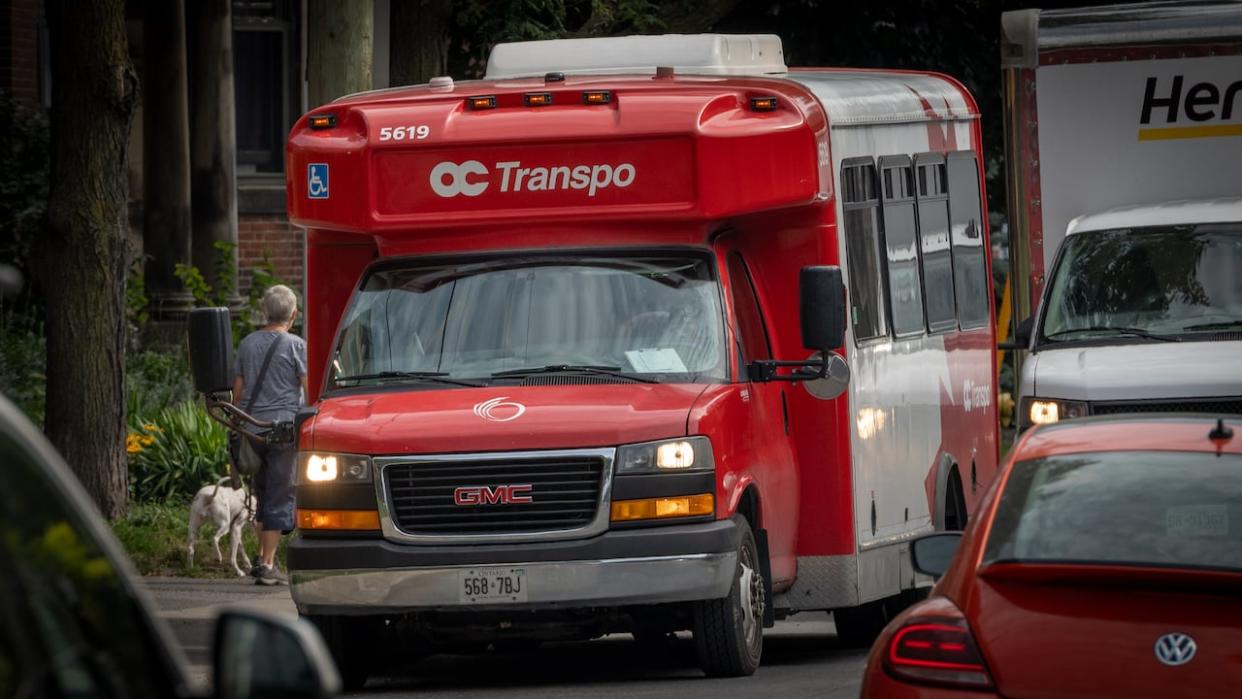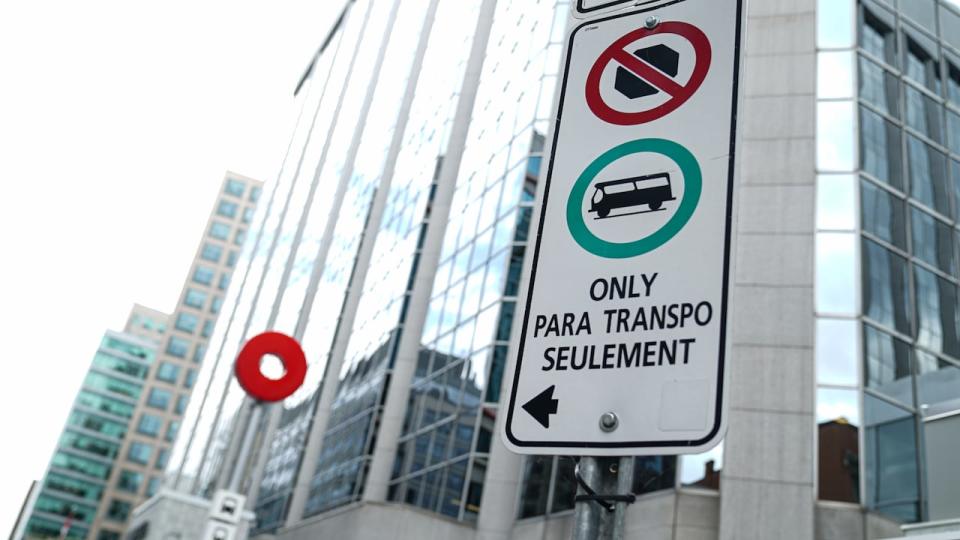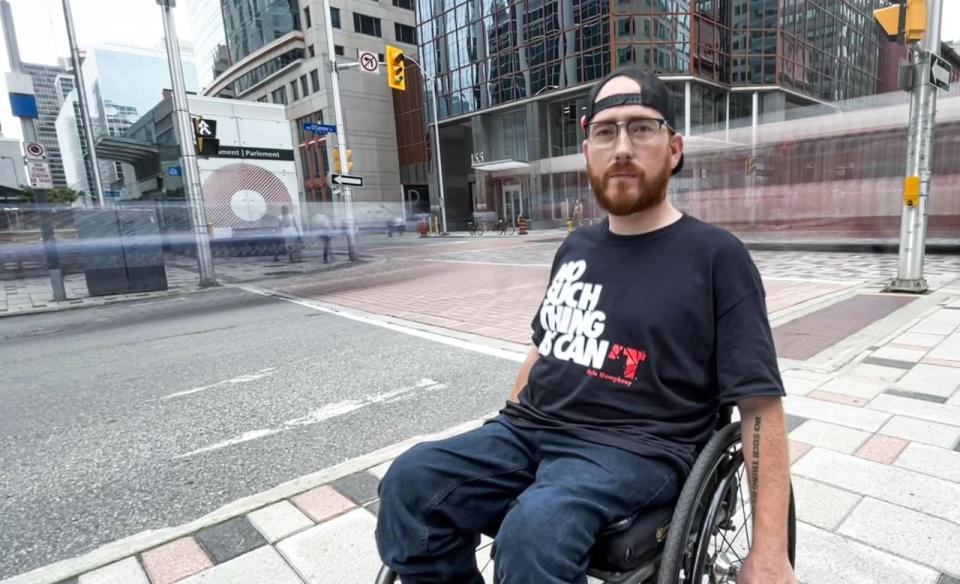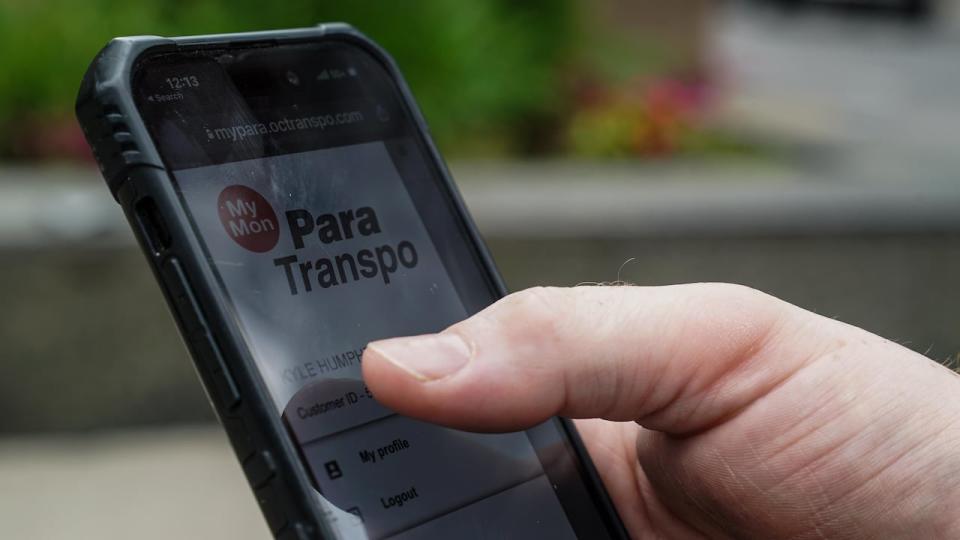Using Para Transpo buses for on-demand pilot project a 'slap in the face' for riders with disabilities

Transit riders with disabilities say they're shocked to hear an OC Transpo pilot project will make use of apparently "spare" Para Transpo vehicles for on-demand service they've been asking for for years.
At the latest meeting of the city's transit commission June 29, OC Transpo announced the project, which will operate in suburban areas with low ridership for a limited time on weekends this fall.
Claire O'Donnell, program manager for service strategy, presented the concept to council saying the service will make use of "spare Para Transpo minibuses that are not normally in use on weekends."
That detail came as a surprise to members of the Ottawa Transit Riders (OTR) advocacy group.
"We are shocked that OC Transpo has unused Para buses since Para customers have been complaining for years about lack of capacity," said OTR co-founder and board member Kari Glynes Elliott, in a post on the group's website.
"The current fleet is old and in poor condition, sometimes causing cancellations and delays when they break down."
OC Transpo has partnered with a Canadian company to provide on-demand rides in place of a fixed-route bus service. Users will be able to request transport by phone, website or through an app, much like a taxi or ride service.
'Like getting rained on when you're already wet'
For years, members of OTR have been campaigning for "ParaParity" — asking OC Transpo to remove barriers across its service so transit in Ottawa is fully accessible to all.
Glynes Elliott wrote that she thinks the reallocation of minibuses will adversely affect the Para Transpo service.
Ryan Lythall, Ottawa Life columnist and disability advocate, wrote in July about the issues he and other Para Transpo riders have been reporting for years, including bad management, lack of communication and "severe" shortages of both Para Transpo vehicles and their drivers.

Para Transpo customers say they have been made to wait hours when minibuses or drivers are late or unavailable. (Matthew Kupfer/CBC)
Sally Thomas hasn't taken the LRT in years because of fears she'll be stuck on a stalled train.
When she's taken conventional buses, she's been shoved and elbowed by other riders, ignored and left behind by drivers, even after having a ramp lowered for her.
Despite that, she said it's "more efficient and predictable than Para Transpo."
Thomas said Para Transpo service may have gotten worse during this summer's LRT shutdown, but the conditions were already so poor that she wouldn't be able to tell.
"It's like getting rained on when you're already wet," said Thomas.
'A slap in the face'
John Redins said he's insulted that the on-demand service will offer same-day requests, while Para Transpo users are forced to book rides within the strict limitations of a dated service.
OC Transpo requires Para Transpo customers to book their rides 24 hours in advance, rides can't be booked within 90 minutes of each other and the service doesn't operate after midnight.
Redins said he and his wife often have to leave gatherings early — a curfew enforced by the constraints. He recently turned down an impromptu party invite because no Para Transpo would be available in time.
Kyle Humphrey, another Para Transpo rider, echoed Redins.
"I shouldn't have to ask to go out with my friends at night," Humphrey said.

Kyle Humphrey says it's hard to imagine how the pilot project involving Para Transpo vehicles won't affect regular riders. (Matthew Kupfer/CBC)
To compensate for the crowded R1 bus (itself a compensation for the shutdown LRT), OC Transpo offered Para Transpo customers the ability to request same-day service along the route. In an update on Aug. 2, OC Transpo general manager Renée Amilcar said the same-day capability was only temporary and ultimately unsustainable.
"That will cost a lot of money," said Amilcar. "And we don't have this money."
Thomas said the decision to fund the pilot project for on-demand service when Para Transpo riders have been asking for improvements so long is "a slap in the face."
"Like I don't mean anything to any of the city councillors."
In a statement, Pat Scrimgeour, the city's director of transit customer systems and planning, said the pilot won't affect existing service.
Scrimgeour said there are 80 minibuses in the fleet, and on average, 64 are used for weekday service and 44 on weekends.
If you were 30 minutes late to work as often as they're 30 minutes late to pick me up, you would not have a job. - Sally Thomas
When no minibus or driver is available, something Humphrey said is a frequent occurrence, OC Transpo commissions a taxi to complete the pick up. He said those vehicles don't have the same equipment as a minibus and the bumpy ride in an accessible taxi van has often left him with back pain.
Humphrey said the current minibuses used by Para Transpo are also so unreliable and in such disrepair they should have been "aged out" and replaced by now.
"It's hard to imagine someone would have looked at these [minibuses] and said 'why don't we tax them a little bit more?'"
A different standard of service
During the transit commission meeting in June, OC Transpo presented data showing Para Transpo "on-time performance" was at an average of 94 per cent between May 2022 and May 2023.
In a statement, Scrimgeour said "on-time" represents "the percentage of trips that arrive to pick up customers within the 30-minute window booked by each customer."
Thomas said she and other customers take no part in reporting those pick-up times and even at that "success" rate, the service is still unacceptable.
"If you were 30 minutes late to work as often as they're 30 minutes late to pick me up, you would not have a job," Thomas said.

Users say the Para Transpo service is inadequate, with no dedicated app and no same-day booking, among other limitations. (Matthew Kupfer/CBC)
Humphrey has missed medical appointments, and once did lose a job he loved because Para Transpo so frequently delivered him to work late.
He said he now works from home and avoids taking Para Transpo as much as possible.
"If they're going to give [on-demand] users first of all access to our buses, second of all same-day service, then where's mine? Where's my ride to work?"
Both Humphrey and Thomas expressed their disappointment in having to advocate for basic measures of equality.
"It's exhausting and it makes me angry," said Thomas.
She and Redins — both board members of OTR — said there will be a "ParaParity" lobby at city hall Sept. 25.
The on-demand pilot project is one topic that will be raised, Thomas said, and all Para Transpo users and allies are invited, but must register.
"We want people to come out in force," said Thomas. "There's probably a page full of issues. Things have been bad for decades."


